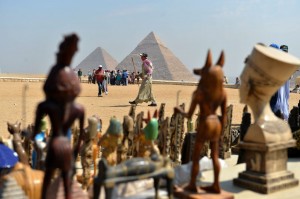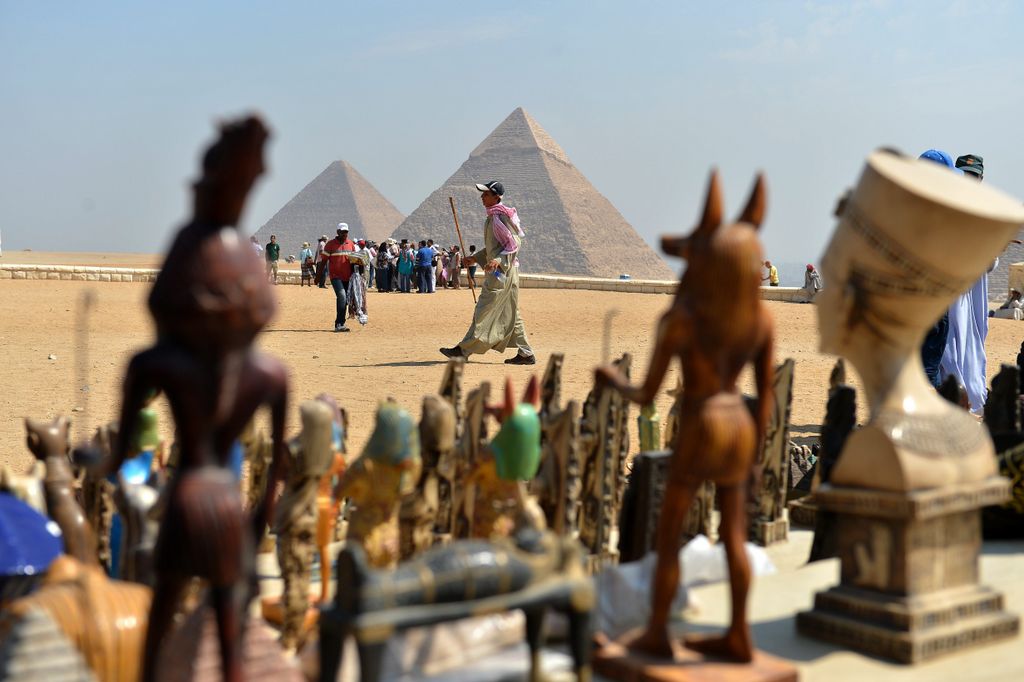
(AFP PHOTO/KHALED DESOUKI)
By Abdel Razek Al-Shuwekhi
Tourism development revenues in the 2013/2014 fiscal year (FY) will exceed 80% of the target according to initial indicators, said Siraj Al-Din, CEO of the General Authority for Tourism Development.
He added that recent contracting with companies raised revenues from 45% to 80% of the target.
The authority is aiming to generate EGP 430m in revenue by the end of the current fiscal year.
Four companies obtained five sites in Ain Sokhna and Ras Sudr in South Sinai, a total area of 1.1m square metres. The sites were part of 30 investment opportunities offered by the authority in December of 2013 for 19m square metres of the land.
The prices per square metre of the five sites ranged, according to Al-Din, between $155m and $163m for sites overlooking coastal areas, and $75 for areas farther away. “These are the highest land prices the authority has ever asked since its founding in 1991,” he said.
“Investments going into the development areas are worth $68.3 million, the majority of which is along the coast of the Red Sea and South Sinai,” he added.
The CEO believes the authority has been able to maintain these investments through three difficult years despite low inbound tourist traffic to Egypt as compared with 2010, in which arrivals exceeded 14 million.
Over the past year the number of incoming tourists has declined to 9 million, compared to 11.5 million in 2012.
The authority has various mechanisms for maintaining the investments on its lands, including the ability to impose fines of up to 15% on companies who do not implement programs within the time specified in the allocated contract, according to Al-Din.
The fines, he explained, are imposed along with an agreement on a new time schedule for implementing the project without withdrawing.
“Withdrawals represent a huge threat to tourism investment. We prefer not to resort to this unless all means of encouraging the investor to complete the project have been exhausted, and there are no obstacles beyond his control in the project’s implementation,” Al-Din said.
The authority is looking into seven grievances from companies withdrawing projects, Al-Din added, to determine if the delay is a result of the company having deliberately delayed implementation, or due to reasons beyond their control.
“In the coming period we are working to offer land in the South Sinai for areas of over 9m square metres, taking into account all forms of tourism in order to increase Egypt’s ability to compete with other countries in the region,” he said.
According to Ibrahim Al-Ashmawy, adviser on investment affairs to the minister of tourism, the Ministry of Tourism is conducting studies on diversifying the means of offering land for investment, such that offers are not limited to sale or the right to use only. Diversification of offers would increase participation in the development of these areas and thus raise the authority’s revenues.
“State participation in the development of projects will raise revenues while also creating confidence that will attract Egyptian and foreign investors,” said Al-Ashmawy.




